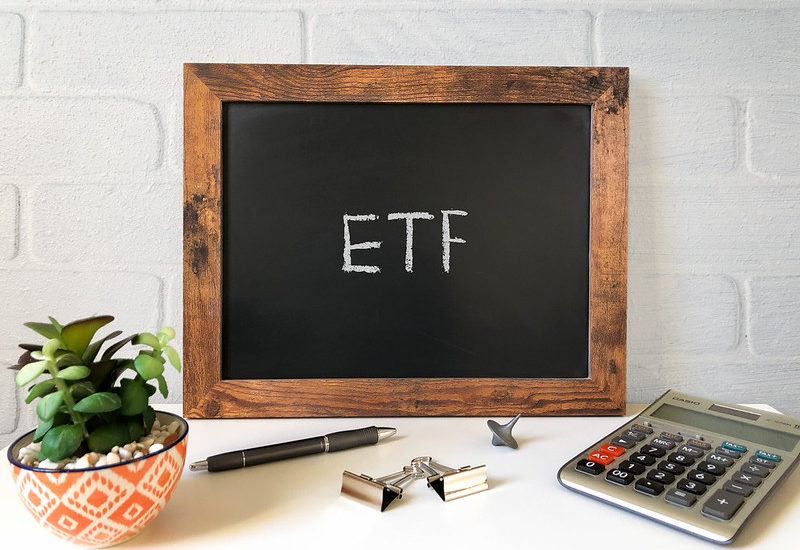Featured
UBS Asset Management Adds Sustainable Equity ETFs to its Offering
Climate change is a key issue not only for investors but also for regulators. That’s why UBS AM has implemented a filter mechanism that excludes the 5 percent of companies with the most negative carbon footprint. Currently, UBS is still one of the leading ETF providers in Europe and has a dominant position in currency-hedged ETFs. The company has recently launched sustainable equity ETFs.

UBS Asset Management (UBS AM) is launching a range of exchange-traded funds (ETFs) that track the newly developed MSCI ESG Universal Low Carbon Select indices. The funds adopt some of the already familiar features of the MSCI ESG Universal methodology.
However, the funds are stricter about the activity-based exclusion of certain companies, so they exclude 5 percent of the companies with the largest carbon footprint. Compared to the well-established MSCI ESG Universal methodology, the new approach introduces an expanded systematic with value-based exclusions depending on activities and redefines the notion of baseline exclusions.
This responds to investor requests to expand traditional baseline exclusions. Exclusions now include nuclear weapons, civilian firearms, tobacco, thermal coal, and fossil fuel extraction.
If you want to read more about the sustainable ETF launched by UBS Asset Management and how investors are taking into account climate change, download for free the Born2Invest mobile app. Our companion app brings you the latest business news in the world so you can stay on top of the market.
UBS Asset Management: Climate change as a filter mechanism
Climate change is a key issue not only for investors but also for regulators. That’s why UBS AM has implemented a filter mechanism that excludes the 5 percent of companies with the most negative carbon footprint. In addition, companies with a CCC MSCI ESG rating (the lowest ESG rating) are also completely filtered out of the investment universe. The valuation of the remaining companies is composed by a combination of market capitalization, ESG rating, and ESG trend.
Thanks to targeted climate-related exclusions and an innovative weighting scheme, these new indices reduce their carbon footprint compared to their respective parent index. At the same time, they have a more pronounced ESG profile. However, since the core of the new indices still tracks the respective parent index, they are an ideal candidate as core exposure replacements for private investors who want to take the first step towards sustainable investing.
The resulting ESG characteristics qualify the group of ETFs as Article 8 products under the European Union’s Sustainable Finance Disclosure Regulation (SFDR).
Currently, UBS is still one of the leading ETF providers in Europe and has a dominant position in currency-hedged ETFs. UBS’s ETF offering includes around 290 products that allow investors to transparently and flexibly diversify their investments across all major markets and asset classes such as stocks, bonds, real estate, commodities, and alternative investments.
__
(Featured image by GotCredit CC BY 2.0 via Flickr)
DISCLAIMER: This article was written by a third party contributor and does not reflect the opinion of Born2Invest, its management, staff or its associates. Please review our disclaimer for more information.
This article may include forward-looking statements. These forward-looking statements generally are identified by the words “believe,” “project,” “estimate,” “become,” “plan,” “will,” and similar expressions. These forward-looking statements involve known and unknown risks as well as uncertainties, including those discussed in the following cautionary statements and elsewhere in this article and on this site. Although the Company may believe that its expectations are based on reasonable assumptions, the actual results that the Company may achieve may differ materially from any forward-looking statements, which reflect the opinions of the management of the Company only as of the date hereof. Additionally, please make sure to read these important disclosures.
First published in extraETF, a third-party contributor translated and adapted the article from the original. In case of discrepancy, the original will prevail.
Although we made reasonable efforts to provide accurate translations, some parts may be incorrect. Born2Invest assumes no responsibility for errors, omissions or ambiguities in the translations provided on this website. Any person or entity relying on translated content does so at their own risk. Born2Invest is not responsible for losses caused by such reliance on the accuracy or reliability of translated information. If you wish to report an error or inaccuracy in the translation, we encourage you to contact us.

-

 Fintech3 days ago
Fintech3 days agoFirst Regulated Blockchain Stock Trade Launches in the United States
-

 Africa2 weeks ago
Africa2 weeks agoAir Algérie Expands African Partnerships
-

 Markets6 days ago
Markets6 days agoRising U.S. Debt and Growing Financial Risks
-

 Business2 weeks ago
Business2 weeks agoDow Jones Near Record Highs Amid Bullish Momentum and Bearish Long-Term Fears

























